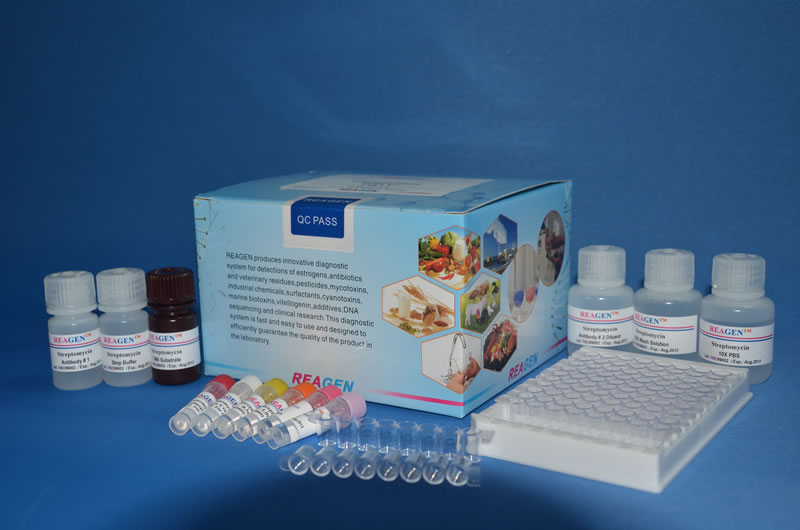ANTI-MLH1 (AB-2) RABBIT PAB
货号: PC56-100UG 产品名称: ANTI-MLH1 (AB-2) RABBIT PAB 品牌: Merck 规格: *** 3周到货 生化实验
Anti-MLH1 (Ab-2) Rabbit pAb
Recognizes the ~83 kDa MLH1 protein.
产品信息
Host Rabbit
Isotype IgG
Immunogen recombinant human MLH1
Form Liquid
Formulation In 0.05 M sodium phosphate buffer, 0.2% gelatin.
Species reactivity human, mouse
Preservative ≤0.1% sodium azide
Applications
Immunoblotting (Western Blotting)
Do not freeze 是的
Positive control LoVo cells
Negative control HCT116 cells
商店和运输信息
Storage +2°C to +8°C
Ship Blue Ice Only
Standard Handling
2°C – 8°C

MA125669 MLH1 品牌 Pierce
MLH1
货号: MA125669 产品名称: MLH1 品牌: Pierce 规格: 500 μl

MA190218 MLH1 品牌 Pierce
MLH1
货号: MA190218 产品名称: MLH1 品牌: Pierce 规格: 50 μg

MA190416 MLH1 品牌 Pierce
MLH1
货号: MA190416 产品名称: MLH1 品牌: Pierce 规格: 100 μg

AB3902 MLH1, RBX-50UG 品牌 Millipore
MLH1, RBX-50UG
货号: AB3902 产品名称: MLH1, RBX-50UG 品牌: Millipore 规格: EA 三周到货 生化实验
Anti-MLH1 Antibody
Species Reactivity Key Applications Host Format Antibody Type
H IP, WB, IHC Rabbit Affinity Purified Polyclonal Antibody
Description:
Anti-MLH1 Antibody
Promotional Text:
Special Shipping Offer on Antibodies
100% Performance Guaranteed
Trade Name:
Chemicon (Millipore)
Specificity:
Homolog 1 of E. coli MutL protein (MHL1, DNA Mismatch Repair Protein MHL1).
Immunogen:
Synthetic peptide from human MLH1. ). The antibody recognizes a region between amino acids 700 and the C-terminus (amino acid 756) of human mutL homolog 1.
Species Reactivity:
Human
Application Notes:
Western blot: 1:500-1:5,000
Immunohistochemistry: 1:50-1:200
Immunoprecipitation: 1-4 μL
Optimal working dilutions must be determined by the end user.
View All »
Presentation:
Affinity purified immunoglobulin. Liquid in Tris-citrate/phosphate, pH 7-8 with 0.1% sodium azide.
Storage Conditions:
Maintain at 2-8°C in undiluted for up to 6 months after date of receipt.
UniProt Number:
P40692
Entrez Gene Number:
NM_000249.2
Gene Symbol:
MLH1
HNPCC
COCA2
MGC5172
HNPCC2
FCC2
hMLH1
View All »
Alternate Names:
DNA Mismatch Repair Protein MLH1; MytL
Usage Statement:
Unless otherwise stated in our catalog or other company documentation accompanying the product(s), our products are intended for research use only and are not to be used for any other purpose, which includes but is not limited to, unauthorized commercial uses, in vitro diagnostic uses, ex vivo or in vivo therapeutic uses or any type of consumption or application to humans or animals.
View All »
Key Applications:
Immunoprecipitation
Western Blotting
Immunohistochemistry
Entrez Gene Summary:
This gene was identified as a locus frequently mutated in hereditary nonpolyposis colon cancer (HNPCC). It is a human homolog of the E. coli DNA mismatch repair gene mutL, consistent with the characteristic alterations in microsatellite sequences (RER+ phenotype) found in HNPCC. Alternatively spliced transcript variants encoding different isoforms have been described, but their full-length natures have not been determined.
View All »
UniProt Summary:
FUNCTION: SwissProt: P40692 # Involved in the repair of mismatches in DNA.
SIZE: 756 amino acids; 84601 Da
SUBUNIT: Heterodimer of MLH1 and PMS2 or MLH1 and MLH3. Part of the BRCA1-associated genome surveillance complex (BASC), which contains BRCA1, MSH2, MSH6, MLH1, ATM, BLM, PMS2 and the RAD50- MRE11-NBS1 protein complex. This association could be a dynamic process changing throughout the cell cycle and within subnuclear domains. Interacts with MBD4. Interacts with EXO1.
SUBCELLULAR LOCATION: Nucleus.
TISSUE SPECIFICITY: Colon, lymphocytes, breast, lung, spleen, testis, prostate, thyroid, gall bladder and heart.
DISEASE: SwissProt: P40692 # Defects in MLH1 are the cause of hereditary non-polyposis colorectal cancer type 2 (HNPCC2) [MIM:609310]. Mutations in more than one gene locus can be involved alone or in combination in the production of the HNPCC phenotype (also called Lynch syndrome). Most families with clinically recognized HNPCC have mutations in either MLH1 or MSH2 genes. HNPCC is an autosomal, dominantly inherited disease associated with marked increase in cancer susceptibility. It is characterized by a familial predisposition to early onset colorectal carcinoma (CRC) and extra-colonic cancers of the gastrointestinal, urological and female reproductive tracts. HNPCC is reported to be the most common form of inherited colorectal cancer in the Western world, and accounts for 15% of all c 2-8℃

